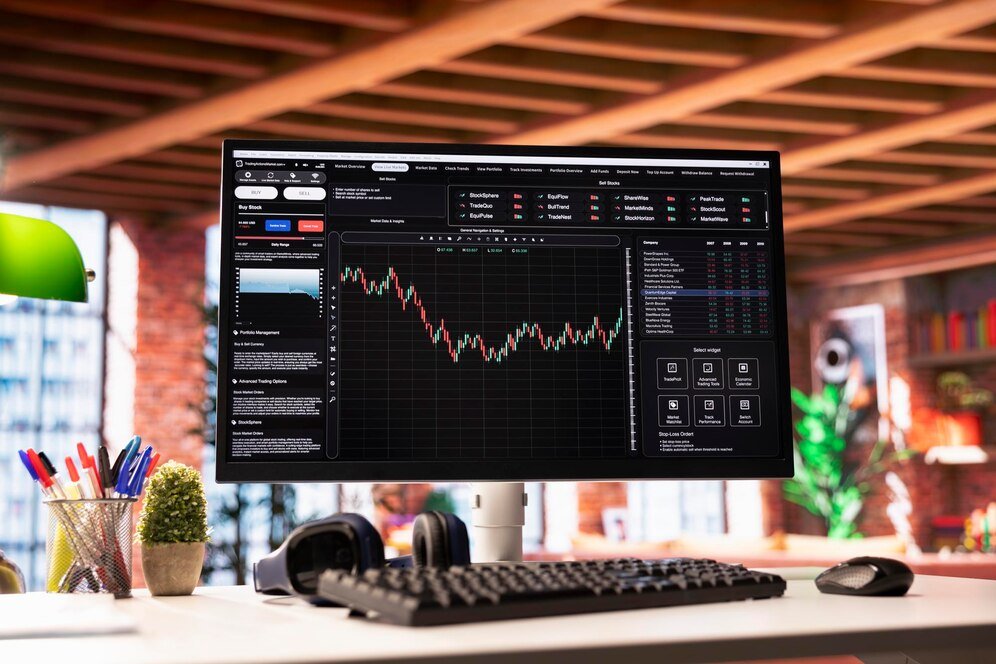Entering the world of cryptocurrency can be exciting yet overwhelming, especially for beginners. A crypto exchange is often the first step in your crypto journey, allowing you to buy, sell, and trade digital assets. This guide will walk you through the process of using a crypto exchange, from setting up an account to making your first trade.
1. Choose the Right Crypto Exchange
Research Your Options
Before you start, it’s essential to choose a reliable crypto exchange. Consider factors like:
- Security: Look for exchanges with strong security measures.
- Fees: Review the fee structures for trading, deposits, and withdrawals.
- User Experience: Choose a platform that is user-friendly and suits your trading style.
- Supported Cryptocurrencies: Ensure the exchange offers the cryptocurrencies you want to trade.
Popular Exchanges
Some reputable exchanges include:
- Binance
- Coinbase
- Kraken
- Bitstamp
- KuCoin
2. Create an Account
Sign Up
Once you’ve chosen an exchange, visit the website and click on the “Sign Up” or “Create Account” button. You’ll need to provide some basic information, including:
- Your email address
- A secure password
Verify Your Identity
Most exchanges require identity verification to comply with regulations. Be prepared to provide:
- A government-issued ID (e.g., passport or driver’s license)
- A selfie for facial recognition
- Proof of address (e.g., utility bill)
3. Secure Your Account
Enable Two-Factor Authentication (2FA)
For added security, enable 2FA. This feature requires a second form of verification (like a code sent to your phone) when logging in or making transactions, adding an extra layer of protection to your account.
Use Strong Passwords
Create a strong, unique password for your exchange account. Avoid using easily guessable information, and consider using a password manager to keep track of your passwords.
4. Deposit Funds
Choose Your Deposit Method
After your account is set up and verified, it’s time to fund it. Most exchanges allow deposits via:
- Bank Transfer: A common method, typically with lower fees.
- Credit/Debit Card: Instant deposits but may incur higher fees.
- Cryptocurrency Transfer: If you already own crypto, you can deposit it into your exchange wallet.
Make Your Deposit
Follow the instructions on the exchange to complete your deposit. If you’re using a bank transfer, it may take a few days for the funds to appear in your account.
5. Navigate the Exchange Interface
Familiarize Yourself with the Dashboard
Once your account is funded, take some time to explore the exchange’s dashboard. Key features to look for include:
- Market Listings: A list of available cryptocurrencies.
- Trading Pairs: Options for trading one cryptocurrency for another.
- Charts and Tools: Tools for analyzing price movements and trends.
6. Place Your First Trade
Choose Your Trading Pair
Select the cryptocurrency you want to buy and the currency you want to use for the purchase (e.g., BTC/USD). This will create a trading pair (e.g., BTC/ETH).
Decide on the Order Type
There are several order types to choose from:
- Market Order: Buy or sell immediately at the current market price. This is the simplest option for beginners.
- Limit Order: Set a specific price at which you want to buy or sell. This order will only execute if the market reaches your desired price.
Execute the Trade
Enter the amount you want to trade and review the details. Once you’re ready, click “Buy” or “Sell” to execute the trade. You should receive a confirmation once the trade is complete.
7. Store Your Cryptocurrency Safely
Understand Wallet Options
After purchasing cryptocurrency, consider where to store it:
- Exchange Wallet: Convenient for trading but less secure. Not recommended for long-term storage.
- Software Wallet: Installed on your device, offering more security than an exchange wallet.
- Hardware Wallet: A physical device that stores your crypto offline, providing the highest level of security.
Transfer to a Wallet
If you choose to use a wallet, transfer your cryptocurrency from the exchange to your wallet address. Follow the transfer instructions carefully to avoid sending your assets to the wrong address.
8. Monitor Your Investments
Keep Track of Market Trends
Use market analysis tools and news sources to stay updated on cryptocurrency trends. Monitoring your investments will help you make informed decisions about when to buy, sell, or hold.
Set Goals and Strategies
Consider establishing goals for your investments, such as profit targets or stop-loss limits. Having a strategy can help you navigate the often volatile cryptocurrency market.
9. Conclusion
Using a crypto exchange can be an exciting entry point into the world of digital currencies. By following this step-by-step guide, you’ll be well-equipped to create an account, make your first trade, and safely manage your investments.
As you embark on your crypto journey, remember to conduct thorough research, stay informed about the market, and prioritize security. With diligence and patience, you can navigate the cryptocurrency landscape successfully. Happy trading!













